WIBTAH if I only spoke German to my husband despite him requesting I don’t?
Imagine a situation where you’re living in a country and committed to mastering the language. It sounds like a no-brainer, right? But what happens when your determination to excel clashes with your partner’s desire for emotional intimacy?
This was the conundrum faced by one Reddit user, who decided to immerse herself fully in German for ten weeks in preparation for an exam. Her husband, fluent in German, agreed to help her, but soon he expressed discomfort. “I don’t feel like I’m speaking to my wife,” he said. Now, the OP faces a dilemma: Should she persist in her plan for the sake of success, or compromise to maintain harmony in her relationship?

‘WIBTAH if I only spoke German to my husband despite him requesting I don’t?’




Expert Insights:
Context and Conflict
The conflict here isn’t just about language—it’s about emotional connection. OP sees her immersion plan as necessary for success, but her husband feels like he’s losing his emotional bond with her in the process. Studies show that language plays a key role in how we connect with others. When a couple shares a primary language, their communication flows naturally, with inside jokes, shared expressions, and emotional nuance. However, forcing a shift can create an unintended emotional distance.
The Science Behind Language and Identity
According to research published in the Journal of Cross-Cultural Psychology, individuals often experience slight personality shifts when speaking different languages. This happens because language is deeply tied to cultural perception, emotional expression, and even tone of voice.
Dr. François Grosjean, a renowned psycholinguist, explains that bilinguals often feel like slightly different versions of themselves depending on the language they’re using. In OP’s case, her husband may be struggling because the version of OP that exists in German feels unfamiliar to him.
Finding a Middle Ground
Language immersion is crucial for fluency, but so is maintaining emotional harmony in a relationship. Experts recommend balance: Instead of enforcing a strict “no English” rule, OP could introduce structured German-speaking sessions—like 2-hour practice blocks or a designated “German Day” each week.
This way, she gets her immersion without making her husband feel disconnected. Seeking out German conversation groups or tandem partners could also reduce the pressure on her husband to act as her primary practice partner.
Proposed Solutions and Lessons Learned
To maintain a healthy balance between language learning and relationship harmony, OP could consider the following practical solutions:
- Structured Language Time – Instead of full immersion, OP can dedicate specific periods for German practice, such as breakfast conversations, evening walks, or one designated German-only day per week.
- Alternative Practice Partners – OP could join local German conversation groups, language meetups, or hire a tutor to practice speaking without relying solely on her husband.
- Emotional Check-ins – Since communication is key, OP should regularly check in with her husband to see how he’s feeling about the arrangement and make adjustments if necessary.
- Multimedia Learning – Watching German movies, listening to German podcasts, or even using interactive language apps can provide additional immersion without straining the relationship.
- Compromise on Important Conversations – Keep emotionally significant conversations in English to maintain intimacy while practicing German in less sensitive contexts.
By implementing these solutions, OP can progress in her language learning journey while keeping her relationship strong.
Here’s what Redditors had to say:
Many agreed that OP was taking her immersion plan too far, suggesting that a structured approach—like designated practice hours—would be more sustainable. Others emphasized the emotional weight of language in relationships and urged OP to consider her husband’s feelings.
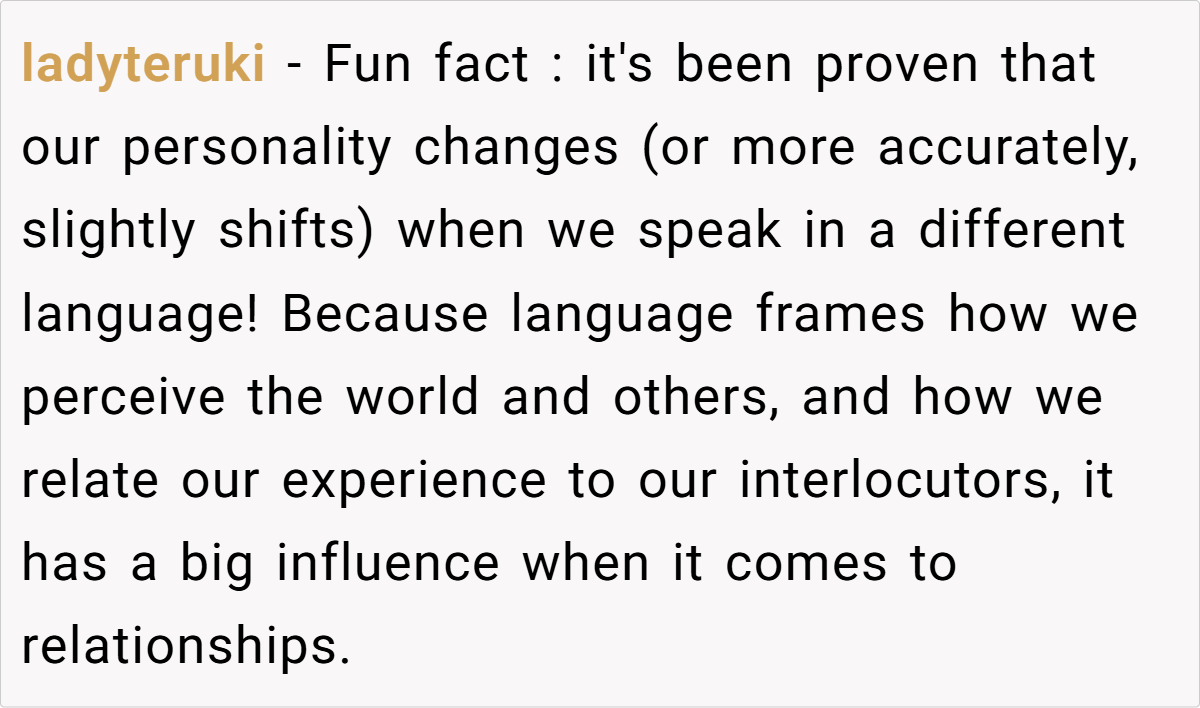

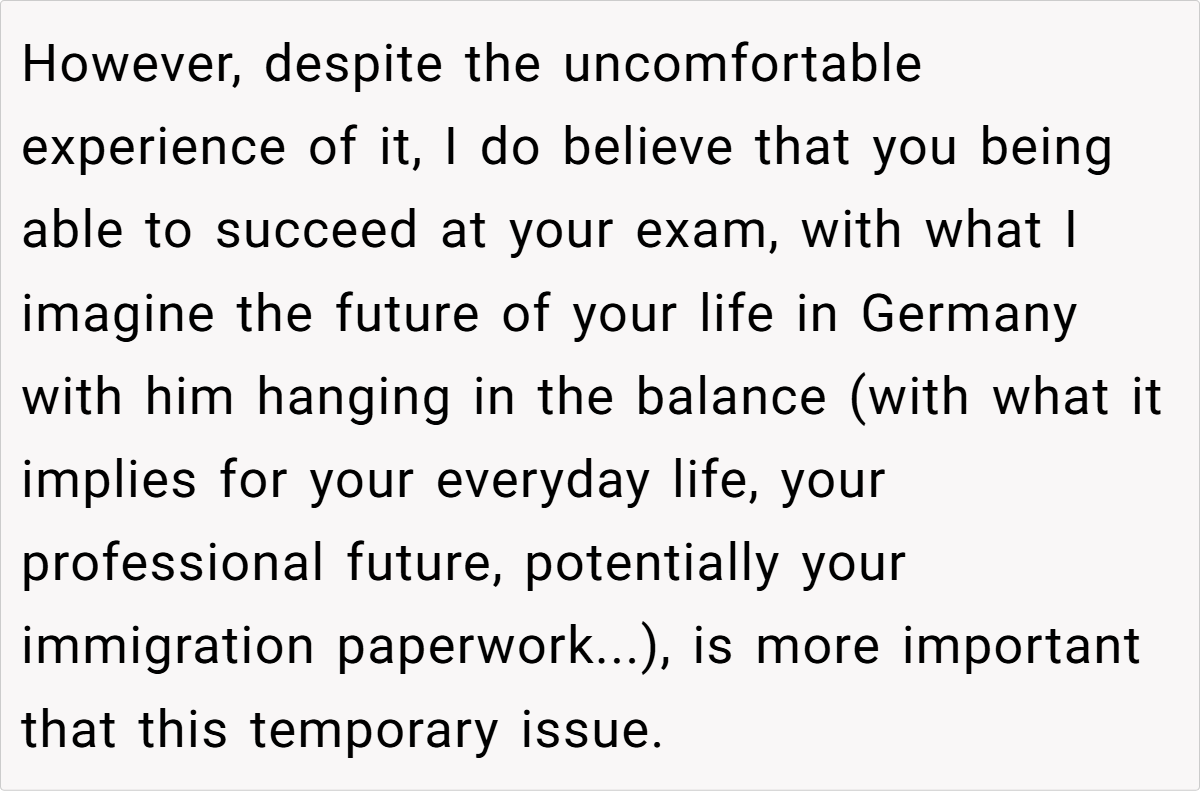
















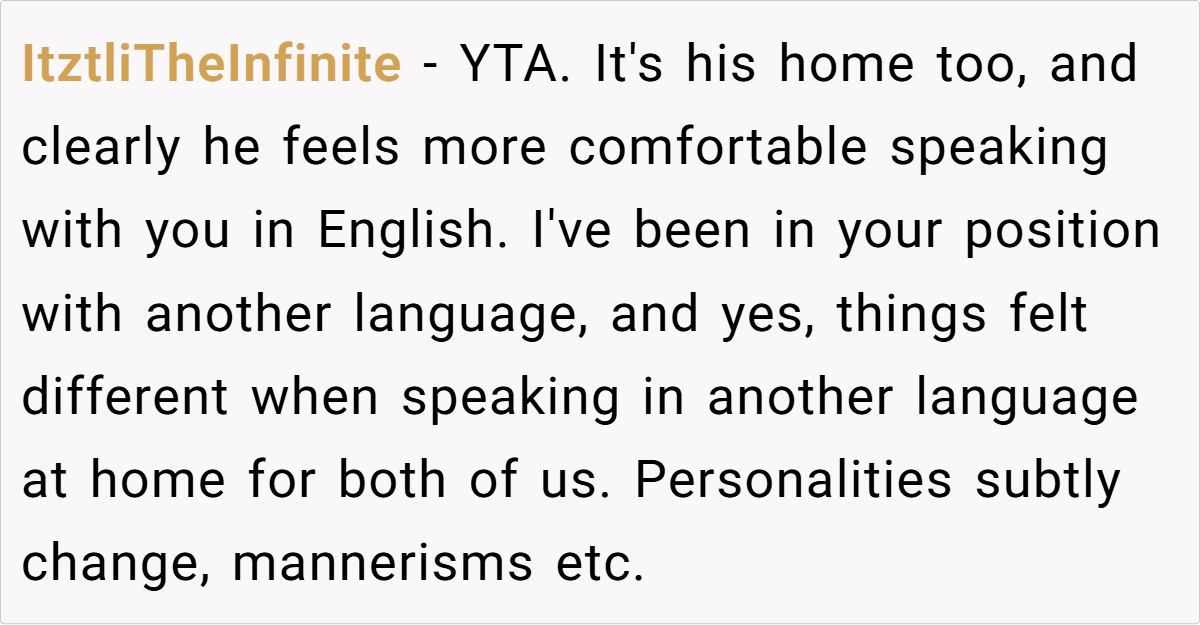







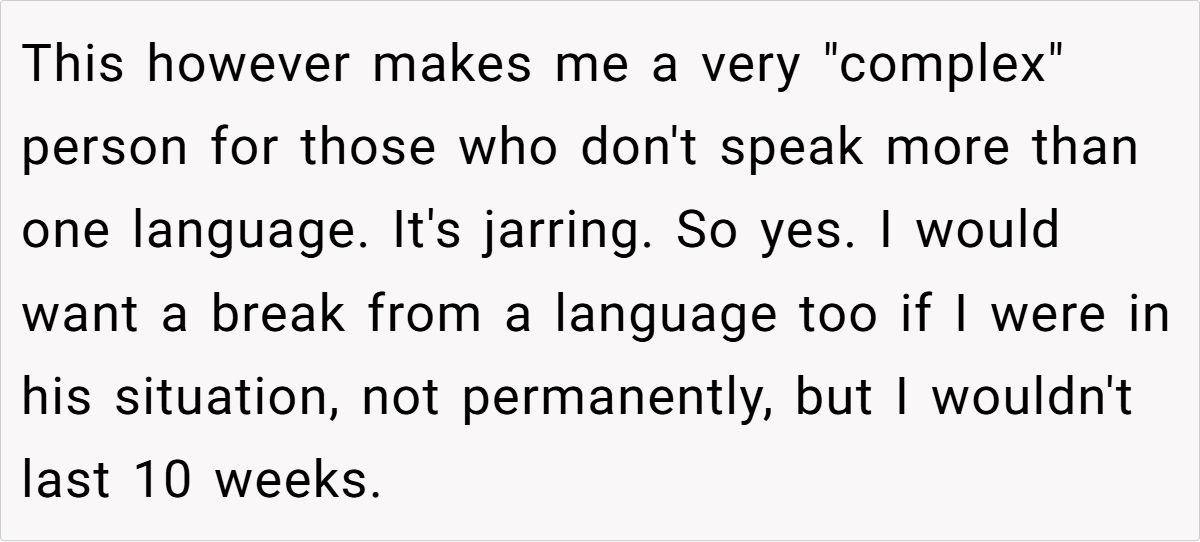

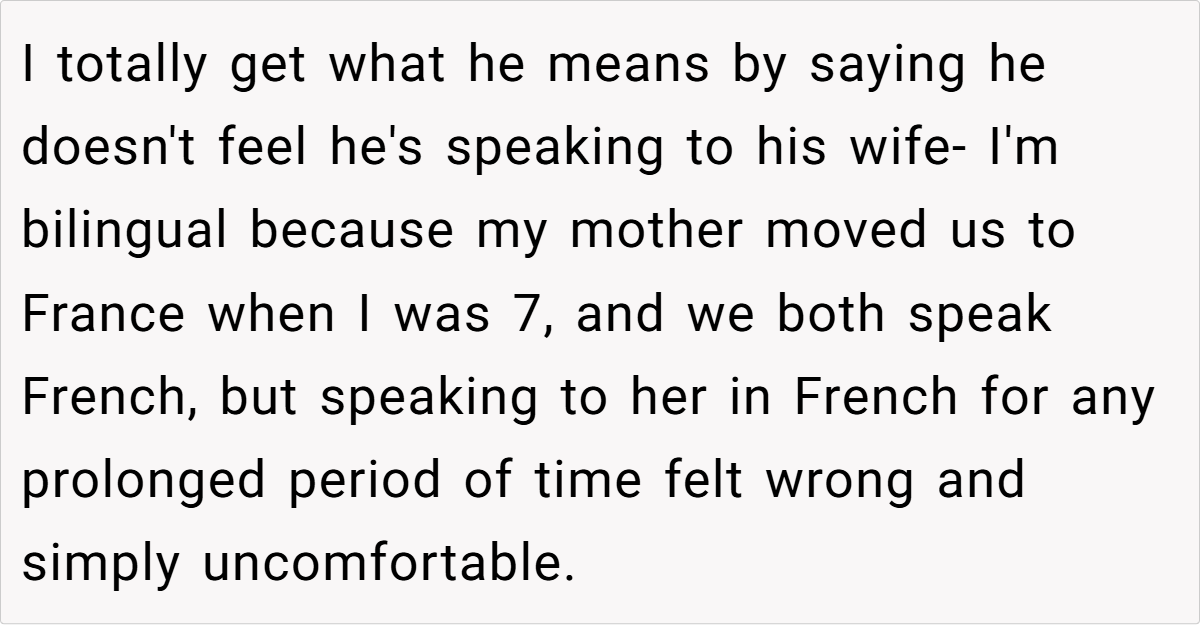

Learning a new language is an admirable goal, but relationships thrive on mutual understanding and compromise. While OP’s commitment is impressive, she might need to reconsider how she approaches her immersion plan. After all, language is meant to bring people together—not create emotional distance.
What do you think? Should OP stick to her German-only rule, or should she ease up for the sake of her marriage?

